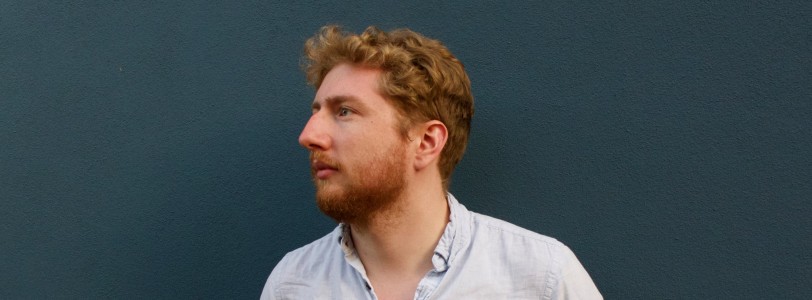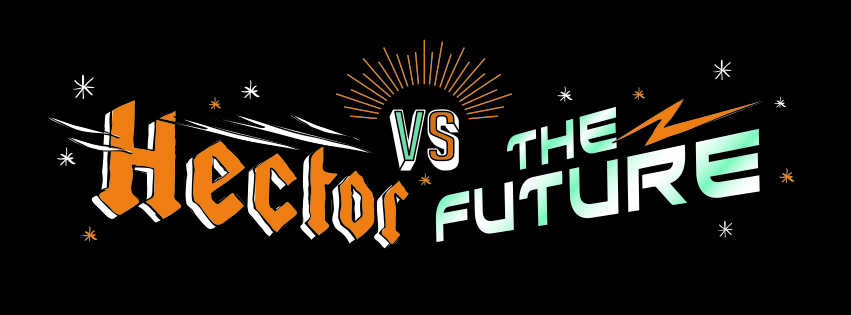What is your earliest memory of writing?
I used to write books about my cats and then force my parents to read them. They were very nice about it. My brother would draw the pictures – it was a partnership. Sadly he's moved on now and it turns out comedy scripts don't need pictures. At least, that's what producers keep kindly telling me...
When did you know you wanted to do it for a living?
When I realised you could. People pay money for this?
This is going to sound really pretentious but... I always did. I knew I wanted to write stories but didn't know what scripts were until I got older. Then I found the process of working with others really exciting. As soon as I started spending time in rehearsal rooms or in long chats about scripts I realised this was the most fun thing to do. It's also terrifying, doubt-filled and tiring, but mostly fun.
How did you go about achieving that goal?
I started with theatre. I wrote loads of plays at school and uni and bullied my mates into doing them. We went to the Edinburgh fringe and had some brilliant reviews and some shocking reviews. Then I moved to London to do a scriptwriting MA and wrote and wrote and wrote.
You basically have to write tonnes of scripts. I wrote a new sitcom spec every year and sent them into competitions and then eventually one got runner up which led to work. If you're not a performer I can't see any other way in. Just throw the scripts at the wall and see which stick.
What processes do you go through when writing? Does it start with a broad idea concept, or does it stem from a single joke that builds outwards?
Writing Hector vs The Future is different than usual projects – it's definitely the most efficient (when I'm on my own I just walk around making tea and talking to myself. It's not efficient).
We outline in detail first. A Hector ep usually has between ten and fourteen scenes split evenly between Uptodateum and Obsoleteum. We work out each plot separately and try to make them reflect each other. This can take ages but it saves so much time later.
Then we open our Google Drive and sit opposite each other for days and days. To get a scene going we write "sh*talogue", which is really expositional, rubbish joke-free versions of the dialogue. Just to get the beats. That gives the scene its shape. Then we fill it in. Whatever makes us laugh stays.
There's also the final part of the process where Hamilton goes through the script at midnight and makes edits. I wake up to fifty-eight emails. This process continues until it's recorded and Hamilton can't edit it anymore.
You hold many accolades and writing credits. Which are you most proud of?
Winning The Sitcom Mission last year was the best. I'd been runner up and shortlist so many times that to actually win a contest was great. They really put you through the wringer – there were two or three rewrites, multiple readings with cast and the final industry showcase had a judging panel.
How did you first meet James Hamilton?
We met on the MA Writing for Stage and Broadcast Media at Royal Central School of Speech and Drama. We didn't start writing together for a while though. He was doing his Casual Violence shows and I was writing alone in a dark room. We teamed up for the 2013 fringe with me co-producing the show he'd written and not long after that he came to me with the idea for Hector. Yes, 2013. That's how long this has taken.
What is it like working with him?
Hamilton is a joke machine. He has other talents too, but I'm consistently amazed at how he can take an original angle on a joke. He's a total perfectionist and we have literally spent a three-hour period arguing over a penny-based joke. But that's good – I love working with someone who is so passionate about getting it right. There's never a shrug and a "that'll do, stick that in".
We also have lots of fun. This show allowed us to be indulgent and try out those ideas that you couldn't put in shows that commissioners would have to approve. We definitely stopped caring about swears or going too dark. And once you let Hamilton turn on the "dark" you go to some interesting places.
Both you and James write on the Amazing World of Gumball. Is it a difficult transition going from children's TV writing, to something like Hector Vs The Future?
Not hugely. The Amazing World of Gumball is unlike other kid's TV in that it plays with big, interesting ideas and some darker themes. And Hector has some cartoony moments in it. The only difficulty is transferring between visual and non-visual jokes. Gumball has a huge amount of freedom in what can happen visually and uses it to maximum effect. We had to stick to wordplay with Hector yet keep the pace up.
The show is based on some of James Hamilton's characters. What is it like writing a story for someone else's creation?
It was great because Hamilton turned up with such strong characters and concept. It meant we had a world immediately and so we could get on with the story crafting. He also set up the rule that the Obsoleteum and the Uptodateum would be able to solve each other's problems, but in a V sign to sitcom tropes would fail to do so. That gave us a game to play every episode – how do we make our plots linked thematically but not literally? Cheers Hamilton for that brain f*ck.
Hector Vs The Future is your first podcast. How did you find the experience? Is there anything that surprised you?
I really loved the experience. I found the response from the audience most surprising – they were so warm to the material. It was so gratifying.
Second most surprising thing: Hamilton is really good at writing raps. I think he's this generation's Kendrick Lamar.
What have you enjoyed most about working on the project?
The cast have been a joy. They had such a huge task with mountains of lines arriving every few weeks and massive rehearsal commitments. But they threw themselves into it and gave us everything they had. It was also brilliant having guest parts for each ep too – you were able to look through your bucket list of comedians and ask them nicely if they'd like to be involved.
Equally, what has been most challenging?
It's been a huge volume of work. Seven episodes is loads and it has been stressful to get the scripts done. It's not only writing the scripts but the edits afterwards and having enough time with the actors to work it through. It meant rehearsals had to be fast, lean and efficient. Luckily our cast were incredible and picked up the material so fast. They brought their A-game every time and made an increasingly time pressured rehearsal experience
Are there things you would do differently in the future?
Probably have more time to write it. But that's what every writer would always say about any project ever.
The things I wouldn't change would be the team. They were just fantastic and worked so damn hard. Andy Goddard is a constant source of positive energy and ideas. Odin OrnHilmarsson wrote us tunes so catchy I was p*ssing off my girlfriend with them for weeks.
How do you measure success? Do you have a measure of success for the podcast?
I have no idea. I want people to enjoy it. It doesn't matter how many do as long as someone engages with it and sticks with it until the end. I don't know how you can measure success for a podcast considering
What advice would you give to people who want to go into writing for a living? Where is best to start?
You have to make a realistic plan, find a job you don't hate that gives you time to write and set constant targets to hit. It's all about self motivation, but everyone I know who has "made it" has done it through sticking to it. Don't write one script and hold onto it, write ten.
What other projects are you currently working on?
Loads! I've got a sitcom in development with Hat Trick at the moment, which I am very excited about. Also a bunch of theatre stuff and some new ideas with Hamilton that we hope to get cracking on as soon as we've had a rest. It's all systems go.
Where can people find you on social media?
You can follow me @jameshuntrods










0 Comments